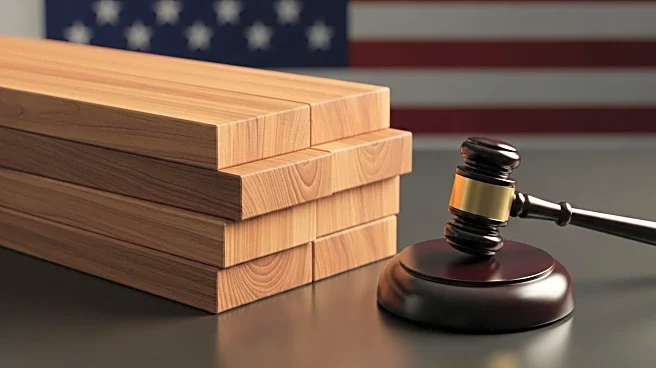What's Happening?
Nine leaders from the U.S. hardwood and engineered wood flooring industry have petitioned President Trump to include their products in the Section 232 tariffs on wood imports. This request, submitted on October 1, aims to protect domestic manufacturers from imports that are perceived as 'dumped and subsidized,' which currently dominate 80% of the U.S. market. The industry leaders argue that these imports threaten over 100,000 jobs, particularly in rural communities reliant on manufacturing. Jeremy Manthei, CEO of Manthei Wood Products, emphasized the impact on mill workers, loggers, and families, noting a significant decline in veneer mills. Columbia Forest Products, an employee-owned manufacturer, highlighted previous trade cases against Chinese dumping that were undermined by production shifts to allied countries. The industry hopes that the tariffs will stabilize the domestic hardwood sector and preserve employment.
Why It's Important?
The petition for tariffs is significant as it addresses the challenges faced by the U.S. wood manufacturing industry due to foreign competition. If successful, the tariffs could provide a lifeline to struggling mills, particularly in rural areas, by reducing the dominance of imported wood products. This move could help preserve jobs and support local economies that depend heavily on the wood manufacturing sector. The broader impact includes potential shifts in trade relations and economic policies, as well as implications for international suppliers who may face increased barriers to the U.S. market.
What's Next?
The next steps involve awaiting a response from President Trump and potential action on the Section 232 tariffs. If implemented, these tariffs could lead to changes in the market dynamics, affecting both domestic and international stakeholders. Industry leaders may continue to advocate for protective measures and monitor the impact on employment and production levels. Additionally, there may be reactions from international trade partners and discussions on trade policy adjustments.









